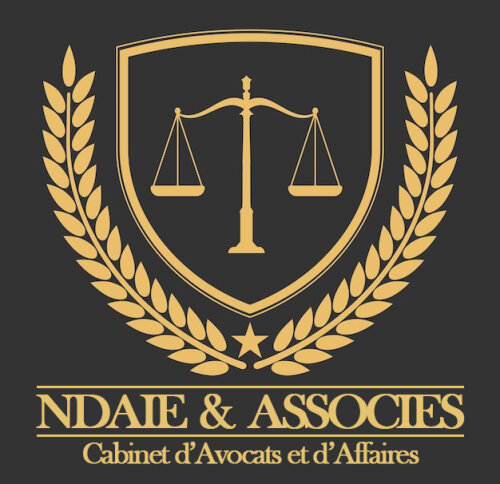Best Investment Lawyers in Lubumbashi
Share your needs with us, get contacted by law firms.
Free. Takes 2 min.
List of the best lawyers in Lubumbashi, DR Congo
About Investment Law in Lubumbashi, DR Congo
The Democratic Republic of Congo, with its abundantly rich natural resources and relatively low cost of labor, presents multiple investment opportunities, especially in the city of Lubumbashi. However, similar to any other foreign investment location, understanding the investment laws is crucial for a successful venture. Investment law in Lubumbashi generally involves matters related to foreign direct investment, public and private partnership, investment treaties, and commercial enterprises. The country's legal system reflects elements of Belgian civil law and customary law, providing an intricate investment legal framework.
Why You May Need a Lawyer
Investing in a foreign country like DR Congo can sometimes be complicated. Regulations are often intricate and the legal language may pose challenges. Local customs, business practices, and legislation differences may considerably impact your investment. Lawyer intervention is usually needed to help navigate issues such as verifying business permits, understanding various trade agreements, drafting contracts, ensuring compliance with local tax laws, and addressing employment-related legal issues. A lawyer could also assist in dealing with any conflicts that may emerge during the investment implementation phase, including disputes over contract obligations or business operations.
Local Laws Overview
In Lubumbashi, several local laws and regulations that investors need to be wary of. The main legislation is the Investment Code, which outlines the rights, duties, and benefits of foreign investors. This includes details on tax benefits, repatriation of capital and earnings, dispute resolution, and guarantees against expropriation. There are also laws regulating labor, environmental protection, public health, tax, and sector-specific regulations. Understanding these laws is crucial as non-compliance may lead to legal disputes, penalties, and could potentially harm the success of the investment.
Frequently Asked Questions
What investment opportunities are available in Lubumbashi, DR Congo?
Lubumbashi offers investment opportunities in various sectors including mining, agriculture, tourism, telecommunications, infrastructure and manufacturing.
What are the risks of investing in Lubumbashi, DR Congo?
Investment risks include political instability, corruption, bureaucratic red tape, and occasional difficulties in enforcing contracts. Financial risks related to currency convertibility and transfer are also possible. However, with the right advice and guidance, these risks can be managed effectively.
What type of legal protection does DR Congo offer to foreign investors?
The Investment Code of the Democratic Republic of Congo offers protection against expropriation, nationalization, and guarantees equal treatment between national and foreign investors. In addition, the country has bilateral investment treaties with several countries offering further protection.
Are there preferential sectors for investment in Lubumbashi?
Yes, there are preferential sectors. These include agriculture, mining, infrastructure, and manufacturing sectors which offer considerable investment incentives.
Can I repatriate my profits and capital?
According to the Investment Code, foreign investors have the right to transfer abroad, freely and without prior authorization, the proceeds of their investments in the case of divestiture or liquidation.
What is the procedure for dispute resolution in DR Congo?
In case of a dispute, parties have the freedom to resort to Congolese courts or choose arbitration. For investment disputes, there is a specific procedure outlined in the Investment Code.
What is the main language of business communication in Lubumbashi?
The official language is French, however, English is also increasingly used in business circles.
Do I need to partner with a local company to invest in Lubumbashi, DR Congo?
No, foreign investors can invest directly or indirectly in a variety of sectors without mandatory local partnerships. However, some sectors might have specific ownership restrictions.
What taxes do I need to be aware of for my investment?
Investors need to be mindful of various taxes such as corporate tax, capital gains tax, value-added tax, withholding tax, and payroll tax among others.
Must my company provide certain benefits to its employees according to DR Congo law?
Yes, the country’s labour law has provisions requiring companies to provide certain benefits, such as pensions and termination benefits. Employment contracts must follow the law’s provisions.
Additional Resources
Getting information directly from governmental bodies like the National Agency for Investment Promotion (ANAPI) can be beneficial. Organizations such as the Federation of Enterprises of Congo (FEC) provide a platform for networking and exchanging business ideas. Investors may also consult agencies specializing in legal and business consultancy services in DR Congo for expert insights.
Next Steps
If you decide to invest in Lubumbashi, DR Congo, seek the assistance of reputable legal professionals with expertise in the Congo investment law and investment climate. Having an experienced attorney by your side will facilitate smoother entry and operations in the market, ensuring you are fully compliant with the local laws, and protecting your investment from any legal impediments.
Lawzana helps you find the best lawyers and law firms in Lubumbashi through a curated and pre-screened list of qualified legal professionals. Our platform offers rankings and detailed profiles of attorneys and law firms, allowing you to compare based on practice areas, including Investment, experience, and client feedback.
Each profile includes a description of the firm's areas of practice, client reviews, team members and partners, year of establishment, spoken languages, office locations, contact information, social media presence, and any published articles or resources. Most firms on our platform speak English and are experienced in both local and international legal matters.
Get a quote from top-rated law firms in Lubumbashi, DR Congo — quickly, securely, and without unnecessary hassle.
Disclaimer:
The information provided on this page is for general informational purposes only and does not constitute legal advice. While we strive to ensure the accuracy and relevance of the content, legal information may change over time, and interpretations of the law can vary. You should always consult with a qualified legal professional for advice specific to your situation.
We disclaim all liability for actions taken or not taken based on the content of this page. If you believe any information is incorrect or outdated, please contact us, and we will review and update it where appropriate.











